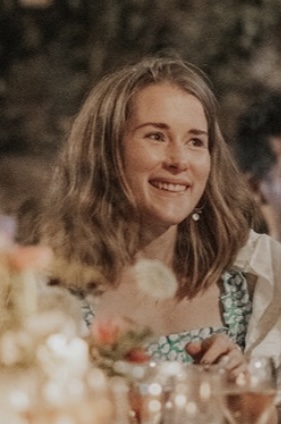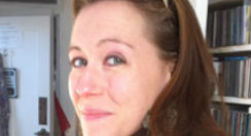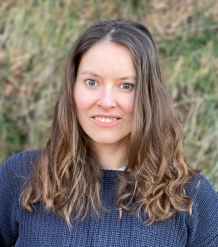2024 Social Inequality
Social Inequality
Challenge Overview
Social inequality is one of the biggest problems facing Western society. Inequalities defined by gender, sexuality, race, ethnicity, education and class hold back individuals and societies.
Did you know, for instance, that office temperatures are determined by the average metabolic rate of men, which makes them 5°C too cold for women? Or that 10.3% of black students drop out of university in England, compared with 6.9% of the student population as a whole? These are just two examples of the ground-breaking research in recent years that has shone a light on the endemic, often invisible, structures that underlie inequality.
This is a dynamic Challenge, looking at what we can do to build an environment to address inequality and make a difference. Topics may include policy-making and inequality, recognising gender inequality in media and film, poverty, global economic inequality, social mobility, safety on the streets.
This year we are also working in collaboration with the South-West Social Mobility Commission (SWSMC) on a new and very exciting enquiry group focussing on Transformational changes needed in education and employment to achieve better outcomes for young people who come from disadvantaged backgrounds. More information on the work the commission was tasked to do can be found on their website: https://www.exeter.ac.uk/about/south-westsocialmobilitycommission/
This challenge will run on Streatham Campus.
Like most twenty-first century institutions, the University of Exeter aims to be equal and inclusive in every aspect of its policies. But does it always succeed? And how can you help to shape policy and/or publicise the university’s policies around inequality?
This enquiry group will investigate the policies currently in place for trying to ensure equality amongst students in the university. It will discuss these policies with a policy-maker in the university’s Equality and Diversity Team and seek to identify areas of strength and weakness. Using these insights alongside workshopping ideas in focus groups and analysing policy documents, the enquiry group will then set out to develop/define new policy in an area it feels could be better.
The end goal is to present a campaign aimed at university leaders using a range of media that could include an informatics poster, a short film, a pamphlet.
Disadvantaged pupils in the South-West are the furthest behind of any region in the country at the end of both primary and secondary school. In 2022, only 37% of pupils left primary school able to do basic reading, writing and maths, compared with 57% of all pupils nationally. Just 18% of disadvantaged students entered higher education by age 19, compared with 45% in London.
As part of this enquiry group, you will identify ways to raise awareness and provide guidance and training about the importance of valuing socioeconomic diversity. What you create could, for example, highlight the experience of what someone from an under resourced background might experience in a workplace or at university (for example, everyday ‘micro-aggressions’ like jokes about clothing, make-up or accent, or exclusionary conversations involving expensive hobbies or holidays). We’d love you to identify a manageable problem and the means to improve outcomes for under-resourced young people in the South West, using your choice of media.
This challenge group will work with the South-West Social Mobility Commission (SWSMC), which has been set up to drive forward transformational change in education and employment outcomes for young people from under-resourced backgrounds in the region. You can read more about the background to the Commission here and here.
Is the Harvey Weinstein scandal indicative of an endemic problem in the Hollywood film industry? How does the Daily Mail’s language position and judge women as bodies? To what extent does the BBC perpetuate gendered assumptions in how it sets the news agenda? How are women portrayed in films and television?
These very diverse and current questions cut to the heart of a gender bias at the media. The task of this enquiry group is to identify where and how media bias operates and address what the next generation of journalists, policymakers, presenters and media executives can do about it.
In Grand Challenges week, this enquiry group will investigate how the media and films shape our perceptions of gender in numerous subtle, often, invisible ways. It will give you the opportunity to draw on recent articles, cutting-edge research in the field, and extensive discussions and analysis in your group. The task is to draw this research together into a campaign, specifically aimed at people in the 18-25 age category highlighting the images and language that define damaging gender stereotypes through the media and/or films. The aim? By highlighting exactly how gender is represented, you will help your target audience to see beyond the myths they perpetuate.
Your product might include the following: a pamphlet, a short film, a website, a poster to showcase your ideas, alongside a campaign. But ultimately, it’s up to you!
Covid 19 has accentuated the crisis of income inequality and poverty in the UK. There are currently 320,000 people living on the streets. Food poverty has increased exponentially with the Trussell Trust issuing 1.2 million food packs to people in food poverty banks in 2017/18, compared to 41,000 packs in 2009/10. And 135,000 children do not have permanent homes. This enquiry group begins by brain-storming manageable initiatives to create practical solutions/aids for an aspect of poverty; it will then proceed to draw up a plan of action, contacts sponsors and prepare to put the plan into action as a test case. Aspects of poverty that might be addressed could include the following:
• Period poverty: getting sanitary products to homeless women
• Getting fresh fruit and vegetables to people using foodbanks
• Books for people on the streets
It is ultimately up to you though! This is a high-octane challenge that will involve you in a range of activities to develop your creative problem-solving, practical research skills, and strategic planning.
Global Economic Inequality
Environmental change has exacerbated existing inequalities, with climate change hitting many of the poorest people around the world first, and hardest. Weather extremes, floods and draughts, food and water shortages threaten the lives of people in poverty; with different types of health crises, lack of harvest, and people losing their jobs and homes. Recent research estimates that climate change will push another 120 million people into poverty by 2030.
Because of this crisis, affected people need to cope with negative mechanisms causing social inequalities, for example dropping out of school, early marriage, healthcare inequalities, unemployment, poverty, and climate change immigration.
Affected countries do not necessarily have the economic and technical capabilities to overcome all these challenges, without an international support system in place. Students working in this group will consider how these complex challenges can be addressed.
What will it take to make the streets safe for women to walk and run on without fear of abuse, unwanted attention or worse? The shocking disappearance of Sarah Everard has highlighted as rarely before that women do not feel safe going about their everyday life, especially when outside alone. The anecdotal stories that have been shared on social media in the wake of the ‘Reclaim these Streets’ vigil are salutary but sadly not surprising. A 2018 study showed that 66% of girls aged 14 to 21 had experienced unwanted sexual attention or harassment in a public place. In 2019, nearly 80% of women surveyed reported being followed by a man or men on the street. Neither is it a safe place for trans people, with 41% surveyed reporting that they have been subjected to violence or threats of violence in a public place (Stonewall Survey).
This enquiry group asks you to run a positive campaign to help make the streets safer. This issue could be addressed from a number of perspectives, including raising awareness of appropriate behaviour among categories of people statistically more likely to commit acts of harassment; identifying and promoting safety measures for people who are more vulnerable to harassment; basic bystander training to encourage effect calling out of inappropriate behaviours. But the choice is yours!
This enquiry group is a space to reflect on how we can make the streets safer places for everyone, with a strong focus on finding constructive ways to change the statistics for good.
Meet the Academic Lead

South-West Social Mobility Commission Executive Associate



